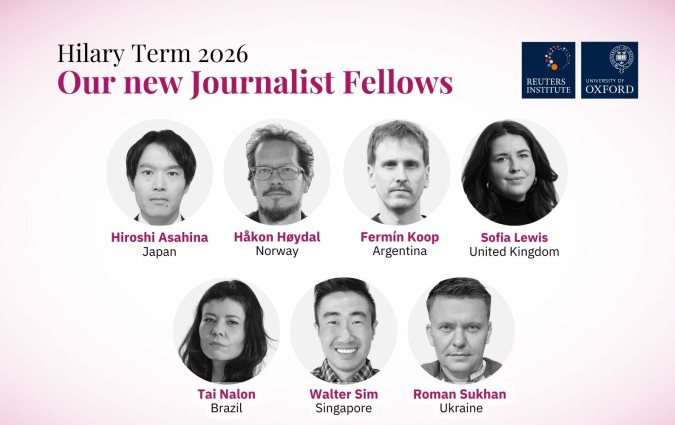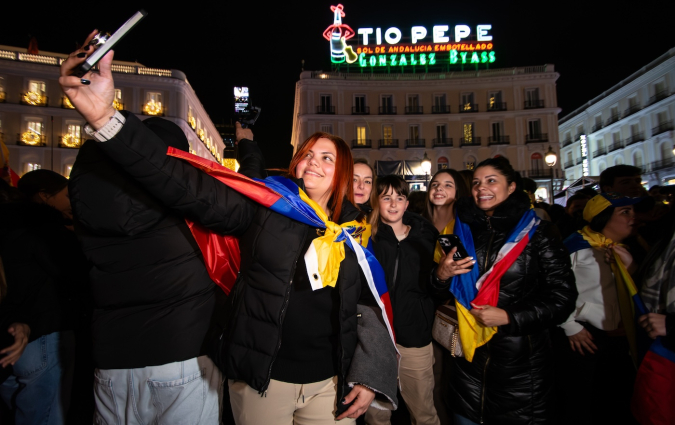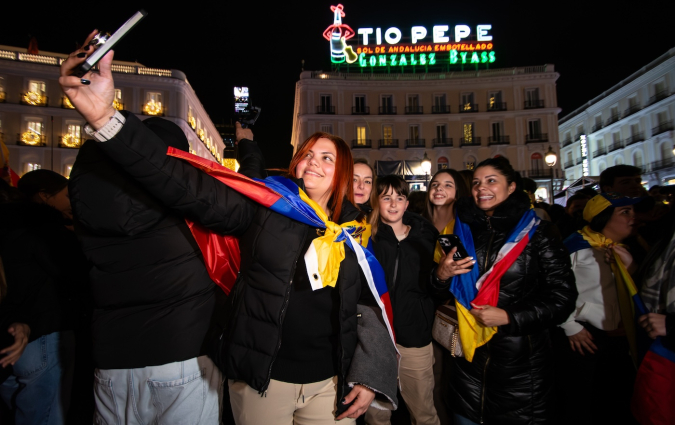The Reuters Institute is sad to hear friend and colleague Paddy Coulter has died

Paddy Coulter at the 40th anniversary of the Journalist Fellowship Programme.
We are saddened to learn of the death of our friend and former colleague Paddy Coulter. As Director of Studies who led our Journalism Programme from 2001 to 2007, Paddy was much loved by our Journalist Fellows who had the opportunity to benefit from his wisdom, warmth and humanity during their time in Oxford. He was a dear colleague who continued to be part of the Reuters Institute family long after he finished formally working with us. Many alumni were happy to see him at the 40th anniversary of the fellowship programme in September 2023 doing what he did best – bringing smiles to people’s faces, telling funny stories and entertaining others with his banjo.
Paddy was an accomplished journalist who gave his life to advancing the interests of journalism and journalists worldwide as well as broader human rights causes. He was an award-winning television producer who was Director of the International Broadcasting Trust prior to joining the Institute. He was a trustee for several humanitarian organisations including Oxfam, the UK Committee of UNICEF and Comic Relief, and he was chair of press freedom organisation ARTICLE 19.
His death is a huge loss to the entire Reuters Institute community and our thoughts are with his family.
Jenny Darnley worked closely with Paddy as the programme administrator for the fellowship programme. She said: “Everyone who knew Paddy will remember his joyful conviviality as Director of the Fellowship and as host at Norham Gardens. Together, we welcomed over 140 Fellows to 13 Norham Gardens and tried to keep its inheritance as a welcoming home for brilliant journalists from all over the world to study and socialise. Paddy’s capacity for friendship was such that many of these connections lasted long after he stepped back from the Institute. He will be much mourned.”
Our Acting Director and Director of Journalist Programmes Mitali Mukherjee said: “Paddy was a ‘people person’ in the truest sense of the term. His incredible ability to not just connect people but to go the extra mile and find common points of interest between them is what made him so well-loved by the journalist fellows community at RISJ and by the wider community. It is a sad day for the Institute as we mourn the loss of a treasured former colleague and constant ally.”
Our former Director of the Reuters Institute David Levy said: “It’s incredibly sad for all who knew him; Paddy was such a force for life and with so many friends and connections in the UK and across the globe I find it hard to imagine a world without him.”
Another former Director Rasmus Nielsen said: “Paddy was such a wonderful and warm presence, and a constant in a constantly revolving set of people around the Institute in Oxford. Very sad to hear of his passing."
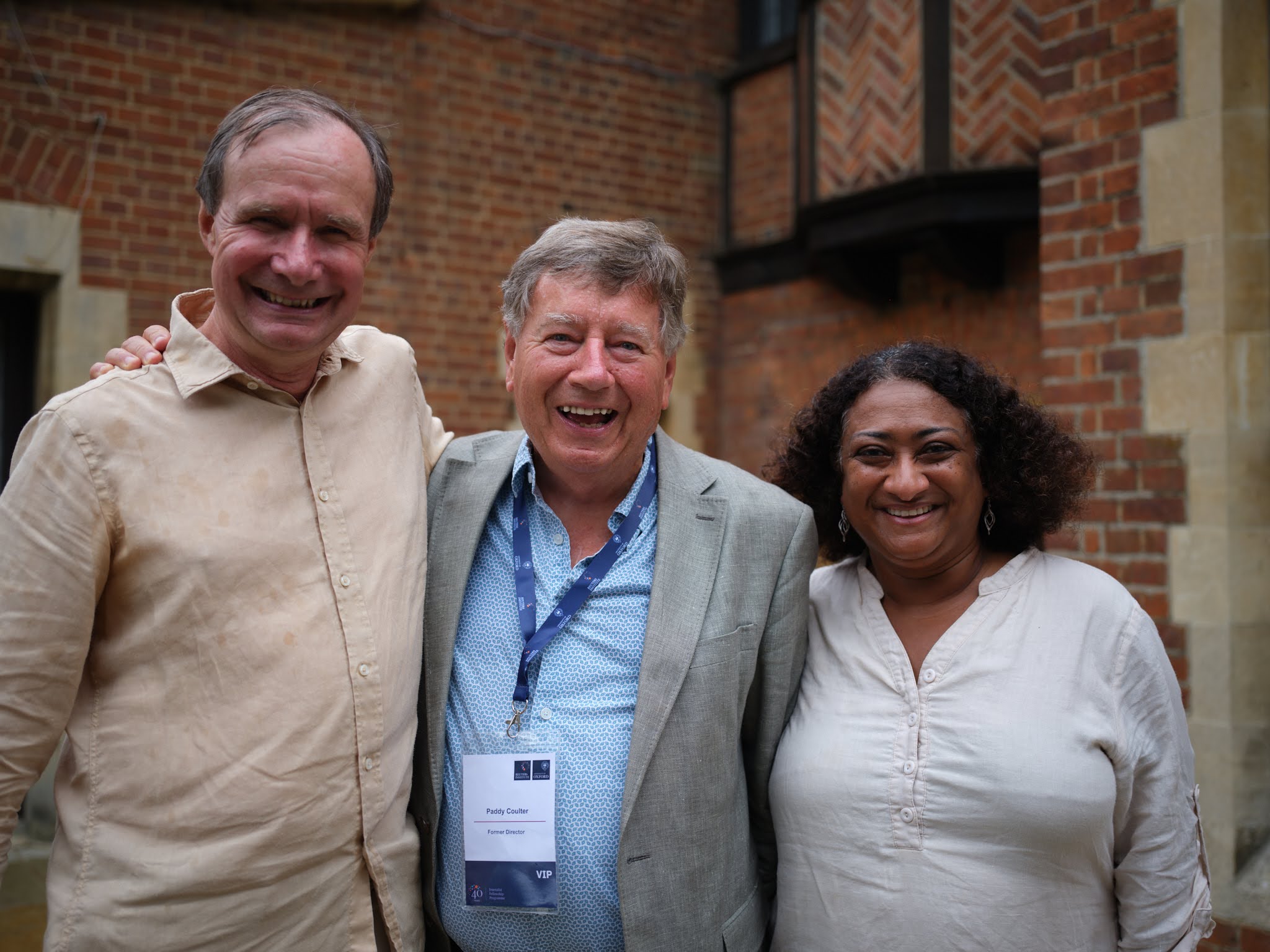
David spoke about Paddy at the celebration of his life which took place in December 2024. Here's an edited version of his speech on this occasion.
“Speaking about Paddy is a huge honour but also a challenge. Let me start in 1988 when we had just moved from London to Oxford. Paddy had heard I wasn’t relishing the daily commute to the BBC, and immediately introduced me to his tightly knit fellow commuter community on the last carriage of the 7.52 train. They were a remarkable group – many became good friends and are here today – but it was clear that without Paddy’s famous sociability few would have overcome their British reserve to ever talk to each other….
I realised that Paddy was a one-man social node – the person that then and ever since made multiple connections, and brought like-minded people together, constantly creating and curating countless overlapping social networks at a time when Mark Zuckerberg was barely out of nappies.
Thanks to Paddy, the commute was enjoyable, but we also envied those who escaped Great Western Railway. When Paddy stopped commuting in 2001 to run the Reuters Foundation’s Fellowship Programme we were pleased for him. It meant I was spared being lobbied at 8am about the BBC’s diminishing coverage of the developing world, but we all feared the conversation might grind to a halt.
Our loss was the Reuters Foundation’s gain. The many fond comments from fellows from that era show how he changed their lives for the better. Jim Moscou, one of Paddy’s first fellows arriving from the US in 2001 remembered:
James Painter, the BBC journalist fellow in 2006 and later himself a Director of the fellowship programme, told me how:
Paddy was also plotting with others here today to transform the Fellowship programme at Green College into what today is the Reuters Institute for the Study of Journalism. Getting an 800-year-old university to embrace journalists and research on journalism wasn’t easy, but the Vice Chancellor and the Reuters Foundation were both persuaded and the new Institute was launched in the autumn of 2006.
But becoming part of the university came at a cost. A central part of Paddy’s period as Director were the weekly “private supper seminars” which attracted stellar speakers. No doubt the promise of great conversation, along with fine wine and fantastic food catered by the Lincoln College chef, helped. Sadly, once the steely eye of a university administrator saw the costs, the regular “supper seminars” stopped and were replaced by public afternoon seminars. Initially there was no food, but in time they were moved to lunchtime and a few sandwiches were provided.
Paddy stopped working at the Institute in 2007 and I became Director a year later, but he remained an incredibly engaged and regular guest at all our events and indeed a fantastic support to me. He continued to supervise many journalist fellows, especially those writing about African journalism or climate change.
New friendships were forged. Indeed, just a week before he died, he was at the Rose and Crown entertaining Edwin Okoth, an accomplished and brave Kenyan fellow from 2015. Paddy was also a linchpin of our 5 yearly fellows’ reunions, chairing sessions, making memorable speeches and, when the work was over, leading the music-making with his banjo.
Paddy’s commitment to freedom of expression took him into new territory. He chaired Article 19 for nine years, and their East African branch for six. He launched the consultancy Oxford Global Media, working on multiple projects including one called Africa Means Business, aimed at enhancing financial reporting in Africa. He promoted exchanges between local journalists in Oxford and Russia, and recently became one of the judges for the Fetisov Journalism Awards.
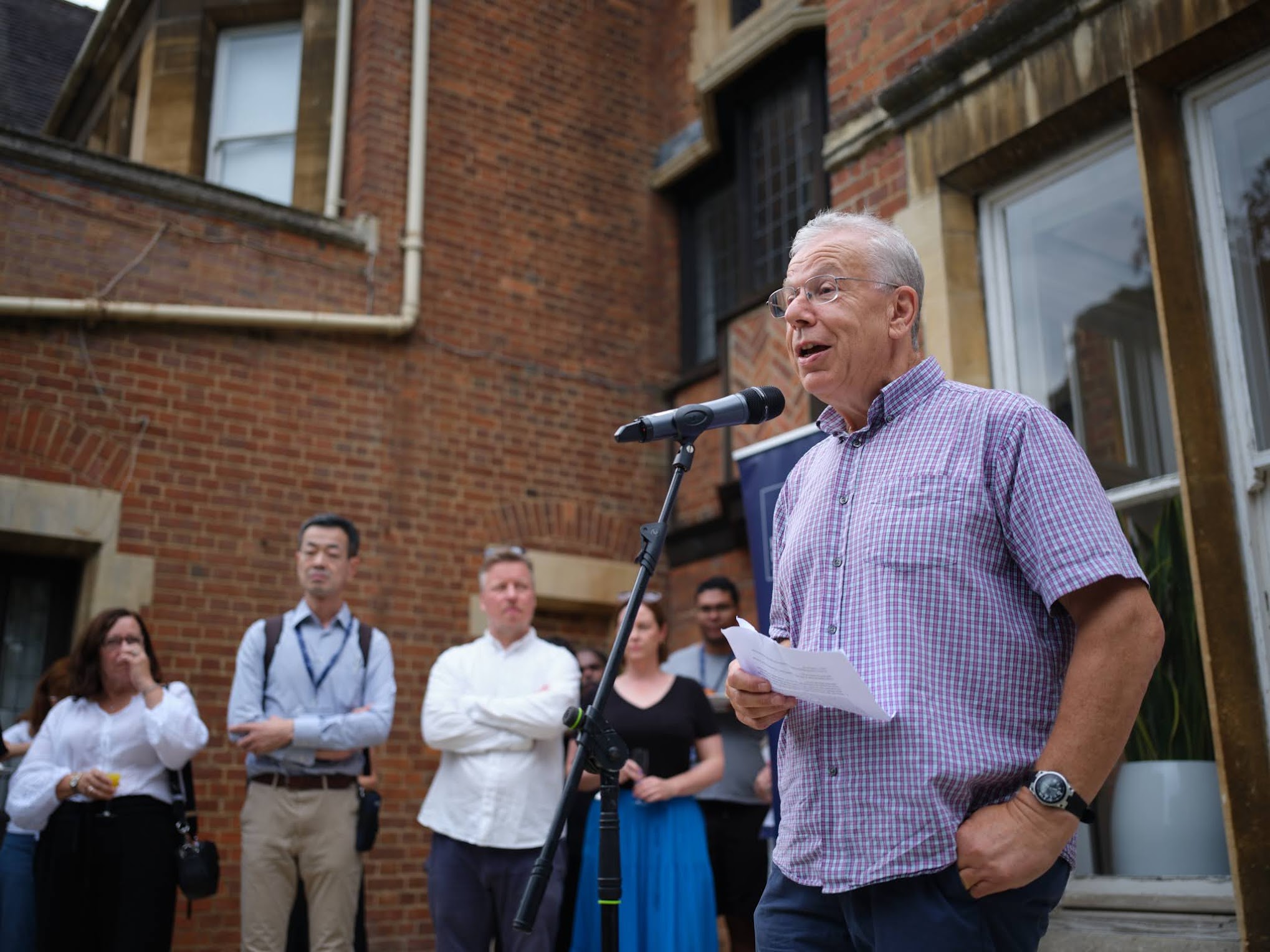
Since the pandemic, Paddy and I enjoyed regular walks around Farmoor Reservoir. As we walked and talked I learned more about Paddy and his ever-expanding networks of connections.
While some of us may slow down and narrow our horizons as we age, Paddy seemed to be the opposite. He retained his characteristic energy, curiosity and passion alongside his humour, warmth and generosity. And as he collected new interests, contacts and causes, they appeared if anything to strengthen his life-long desire to make a difference.
The cause worrying him the most lately was what could be done to provide sustained support for the increasing number of journalists forced into exile – from all those countries where, sadly, there is no longer any prospect of return.
I’ve mentioned the hundreds of journalists across the world who owed so much to Paddy. But I have this feeling that, had he been with us for longer, there would have been very many more.”
Since hearing of Paddy's death, tributes have poured in from former Journalist Fellows and others around the world.
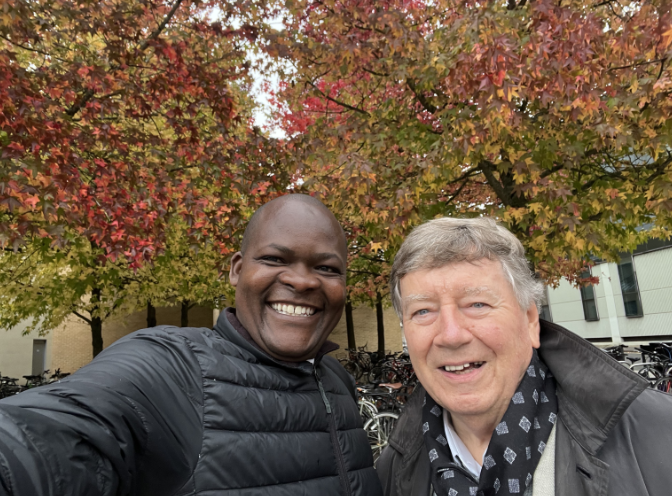
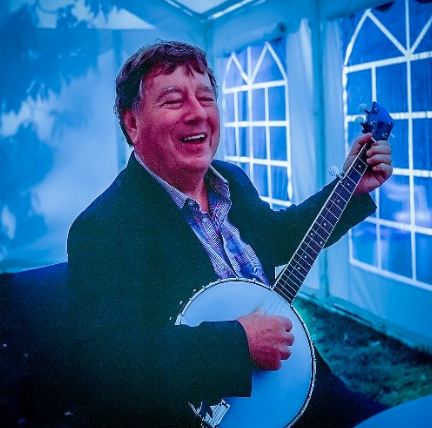 In the years that followed, Paddy remained a warm and welcoming presence in Oxford. I'm pretty sure it was Paddy who introduced me to elderflower, at a party at his sun-drenched Eynsham home. (I always keep a bottle of the liqueur on hand now.) I was so happy to see him at the Reuters Institute's anniversary gatherings, where we would pick up where we left off. Paddy always tried his valiant best to raise whatever Irishness was buried in my immigrant soul. Paddy was proof that what makes the institute so special is the people. I took this photo in 2018: Paddy, banjo in hand. I'm grateful to have known him.
In the years that followed, Paddy remained a warm and welcoming presence in Oxford. I'm pretty sure it was Paddy who introduced me to elderflower, at a party at his sun-drenched Eynsham home. (I always keep a bottle of the liqueur on hand now.) I was so happy to see him at the Reuters Institute's anniversary gatherings, where we would pick up where we left off. Paddy always tried his valiant best to raise whatever Irishness was buried in my immigrant soul. Paddy was proof that what makes the institute so special is the people. I took this photo in 2018: Paddy, banjo in hand. I'm grateful to have known him.


